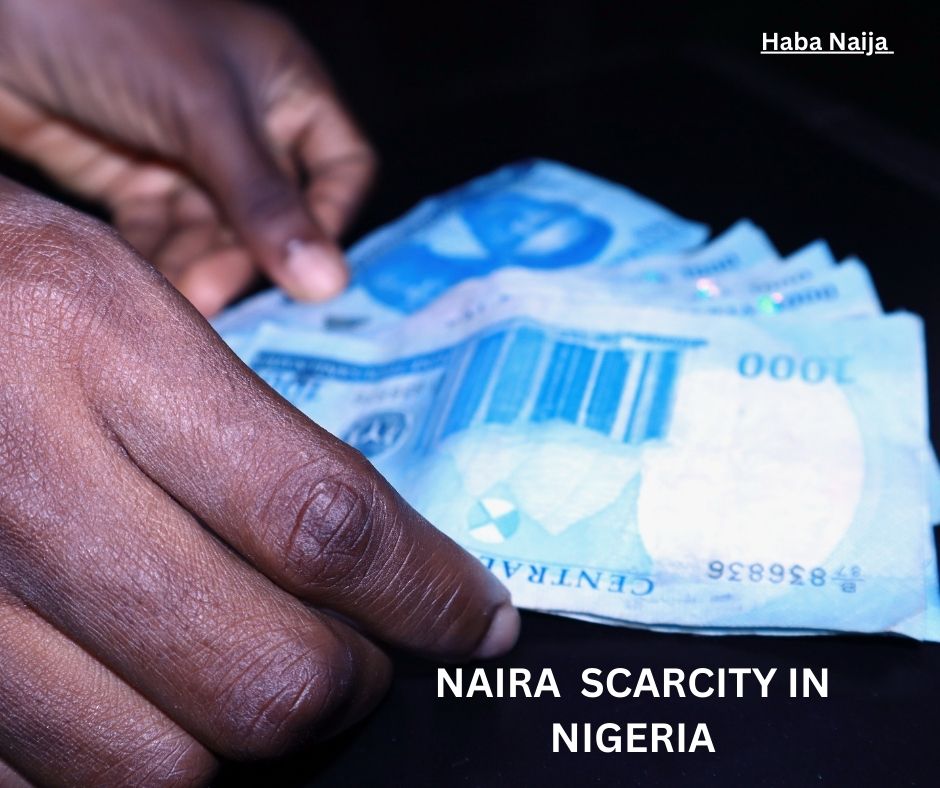In recent times, there has been a growing concern over the scarcity of Naira in Nigeria. With 2023 fast approaching, many are wondering what the future holds for this valuable currency and how it will impact the economy. From inadequate financial policies to corruption and mismanagement, there are several reasons behind this alarming trend. But fear not! In this blog post, we’ll be exploring some practical solutions that can help combat Naira scarcity in Nigeria come 2023. So sit tight as we dive into this crucial topic that affects us all!
Table of Contents
The Problem of Naira Scarcity
1. The Problem of Naira Scarcity: The naira is the currency of Nigeria and has been in use since 1967. It is divided into 100 kobo. The naira is currently pegged to the US dollar at a rate of NGN305/$1. The Nigerian economy is heavily dependent on oil exports, which account for over 90% of export earnings and 80% of government revenue. However, due to the fall in oil prices in recent years, Nigeria has been facing a severe shortage of foreign currency, leading to a sharp depreciation of the naira.
The problem of naira scarcity has led to a number of negative consequences for Nigeria, including inflation, unemployment and poverty. Inflation has risen to double digits and is currently at 17.6%. This has hit the poor hardest as they are unable to afford basic necessities. Unemployment has also risen sharply, with an estimated 12.5% of Nigerians now out of work. The situation is particularly dire for young people, with over 60% of those aged 15-24 unemployed.
The solution to the problem of naira scarcity lies in diversifying the Nigerian economy away from its dependence on oil exports. This will require significant investment in other sectors such as agriculture, manufacturing and tourism. The Nigerian government has taken some steps in this direction, but much more needs to be done if the country is to overcome its current economic challenges.
The Reasons for Naira Scarcity
The Nigerian currency, the Naira, has been in scarcity for some time now. The reasons for this are both economic and political.
On the economic front, Nigeria is a import-dependent country. This means that we rely heavily on other countries to provide us with the goods and services that we need. Unfortunately, our economy has not been doing well, and this has led to a decrease in the value of the Naira.
The political situation in Nigeria is also unstable, which has led to investors being hesitant to invest in our country. This has further decreased the value of the Naira.
The solution to this problem lies in both the economic and political spheres. We need to improve our economy so that we can become less reliant on imports. And we need to stabilize our political situation so that investors will feel more confident about investing in Nigeria.
The Solutions to Naira Scarcity
The primary solution to naira scarcity is an increase in the money supply. The Nigerian government can do this by printing more money, borrowing money from other countries, or increasing foreign investment.
Other potential solutions include:
-Reducing government spending
-Privatizing state-owned enterprises
-Improving tax collection
-Increasing transparency and accountability in the use of public funds
-Reforming the oil sector
The Consequences of Naira Scarcity
The naira scarcity in Nigeria has led to a number of consequences for the economy and society. Firstly, the value of the naira has plummeted, leading to inflation and a decrease in purchasing power. This has hit Nigerians hard, as the cost of living has increased while wages have remained static. Secondly, businesses have been forced to close their doors due to the lack of access to foreign currency. This has led to job losses and an increase in unemployment. Finally, the naira scarcity has made it difficult for Nigerian companies to compete internationally, as they are unable to purchase raw materials and machinery needed for production.
How to Prepare for Naira Scarcity
Assuming that you are referring to a scarcity of the Nigerian Naira, here are a few ways that you can prepare:
1. Have a plan B: If you rely on salary income in Nigeria, then make sure you have at least 3-6 months of living expenses saved up in case of an unforeseen job loss or pay cut.
2. Consider diversifying your income sources: If possible, try to bring in money from other streams such as investments, side hustles, or freelancing gigs. This will help buffer the blow if one of your income sources dries up.
3. Build up your foreign currency reserves: If you have access to foreign currency, whether it’s through family/friends overseas or through business dealings, now is the time to start building up those reserves. That way, if the Naira takes a nosedive, you’ll still have access to cash.
4.Stockpile essential goods: In times of economic hardship, it’s always good to have some staples stocked up at home so you don’t have to venture out (and possibly spend more) when things get tight. Items like rice, beans, flour, and cooking oil will last awhile and can be used to make multiple meals.
Conclusion
We have discussed the causes and potential solutions to Nigeria’s naira scarcity in 2023. To address this problem, the Nigerian government should focus on tackling inflation, increasing foreign investments and diversifying its economy. It also needs to introduce more effective financial policies that promote economic growth and stability. Additionally, public awareness campaigns need to be implemented so that citizens are educated about how their actions can impact currency availability in an increasingly globalized world. With these strategies in place, we believe that Nigeria will overcome its current naira scarcity issue and continue to develop into a prosperous nation.


Recent Comments